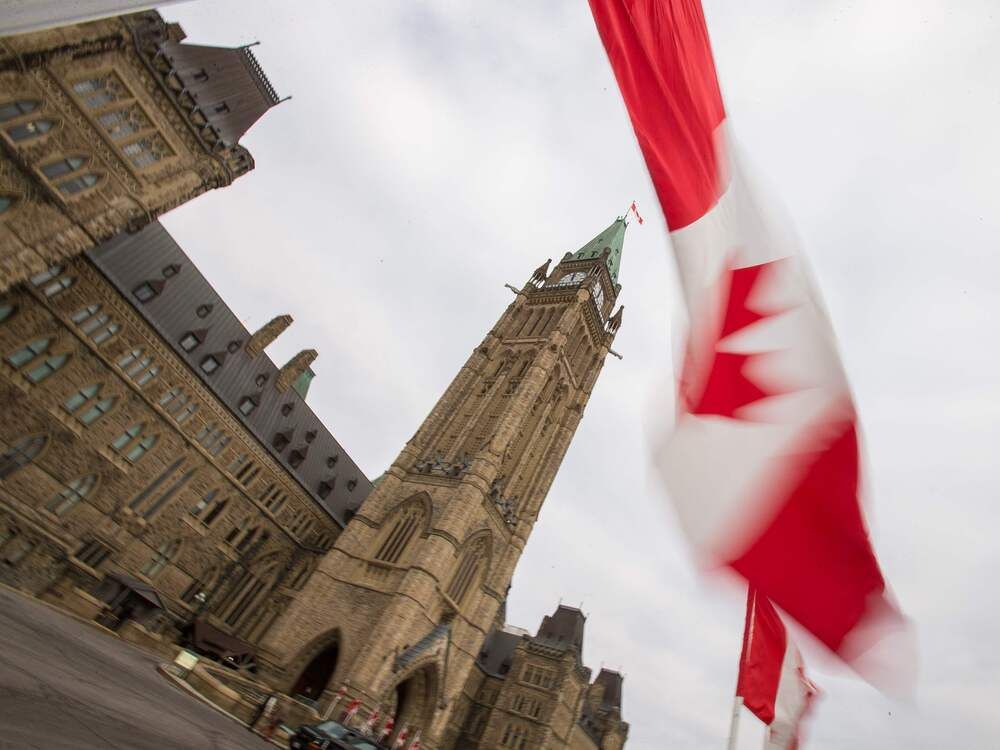I’m pretty sure most people are aware governments use tax dollars to pay for things.
"Future historians of public finances in Canada will see from a glance … that something remarkable happened in the 2020/21 fiscal year,” the report notes.
Yeah that’d be a global pandemic the likes of which have never been seen before. Brilliant report.
What? Do you expect some other country to pay?
I’d expect corporations that had big windfall profits from the pandemic to pay.
I had expected our government not to completely fuck future generations.
Where in it did they say we were fucked? I haven’t read it yet but I’m guessing that’s not in there. 1% higher taxes or whatever isn’t great but it’s more than worth it. Especially if you’re in a lower bracket and don’t see much or any of that anyway.
Edit: It doesn’t say anything about future costs from a skim of the paper, or even say the expenditure was too much. They mostly focus on how governments presented what they were doing, which in their opinion was skewed.
I find it weird that these academics wrote (with the text equivalent of a straight face) that politicians shouldn’t dissemble and spin things, when that’s basically their entire job, but whatever.
I thought we were talking finance, not global warming.
Try to keep up.
Why would you expect that? If I’ve learned anything, it’s that nobody has ever paid more than lip service to the effects on future generations. Pollution, overfishing, everything we do is for ourselves.
I’m shocked – shocked, I say – to hear that the National Post thinks the government shouldn’t help people. Obviously the only thing it should spend money on is corporate subsidies.
The government shouldn’t be subsidizing people or corporations
No, the government should be taking care of it’s people. That’s literally it’s only job. Sitting on money while people are dying is a complete failure of government, and at that point it should be replaced.
People should be taking care of themselves and each other voluntarily, government intervention shouldn’t be necessary.
Look back in history, governments have always ruled citizens to their own benefit rather than the benefit of the citizens. There’s no reason to think this has changed
How many people do you know with the power or means to run hospitals or fund research into curing diseases? That’s what taxes are for, and that’s the only scale that works for something as big as a pandemic, or country/province-wide healthcare in general.
This bootstraps policy is a naive fantasy. You need to learn why.
Maybe go live in rural America for a bit. It’s sobering and catalyzing.
Oh my god who cares
People who are very concerned about paying an extra 10,000 CAD on their 1,000,000 CAD income.
Uhhh… people who work for their money? Or do you enjoy lighting your money on fire?
Lmao yes because investing in a population during a global pandemic is lighting money on fire.
I enjoy surviving an international pandemic. That’s not free.
What you should have posted was nothing.
Lol, underrated but top tier comment
Anarchy is super edgy in homeroom, but was obsolete the first moment humankind banded together for safety and specialization.
@AutoTLDR@lemmy.world
Content Reduced By 16%
Postmedia is committed to maintaining a lively but civil forum for discussion and encourage all readers to share their views on our articles. Comments may take up to an hour for moderation before appearing on the site. We ask you to keep your comments relevant and respectful. We have enabled email notifications-you will now receive an email if you receive a reply to your comment, there is an update to a comment thread you follow or if a user you follow comments. SHARE YOUR THOUGHTS To contribute to the conversation, you need to be logged in. If you are not yet registered, create your account now - it’s FREE. Login/Create an Account Subscribe for Unlimited Online Access.
Character Count: 677
(This is an automated comment.)
Good bot. It caught all the valuable stuff.
I dislike the FP and CD Howe Institute as much as the next Lemmite, but the press release, as presented, is a cry for accountability:
Estimates of revenue and spending are consistently incorrect, Robson said. “What we’ve seen over the past 20 years is that there’s very consistent under-projection of revenue and under-projection of spending … So there’s something wrong with the way governments are presenting the numbers there.”
And what should be done?
Much of the blame lies with elected members of Parliament. “I think part of the problem (was) that you didn’t have enough MPs standing up and saying, wait a minute, like you’re totally sidelining Parliament,” Robson said.
MPs raising legit questions about government policy and spending? Sounds good to me.
The federal revenue projections are based on an average of economic projections from the private sector.
This should have been noted in the article.
Finance Canada stopped relying on its own internal modeling for economic growth in the 1980s and 1990s when the Mulroney government ran up huge deficits based on overly bullish estimates for economic growth. As a reaction/response, a protocol was established in the mid nineties for using a basket of private sector forecasts, mainly from the major banks, the Conference Board, and one major university. Statistics Canada’s forecasts used to be kept in the basket, but it doesn’t even look like their estimates are in their now.
This then begs the question, how is it that the private sector estimates of economic growth, that are the fundamental driver for tax revenue, so consistently off?
Why isn’t the CD Howe Institute posing that question?
Or if it’s a problem with Finance Canada’s tax model that crunches out the estimate of how much tax revenue will be gained for how much growth, then CD Howe should look a bit more deeply to be able to show that. Are there specific sectors that are consistently being under forecast for a specific level of growth?
Those are questions for the CD Howe Institute.
Everything you say may be true, but the article/press release also complains to provincial government budgets, nonstandard accounting between levels of government, inconsistent delivery of budgets (not just due to the pandemic, if I’m reading it right), and, most importantly, MPs and MPPs giving budgets a pass.
This seems to come across at a certain level as whinging about the Constitution.
Both Budget and Supply (expenditure) bills get a lot of scrutiny in committees in Parliament.
The CD Howe Institute like other Think Tanks is regularly invited to testify in these proceedings at the federal and provincial levels. Can’t they offer more concrete examples of why they believe the estimates are systematically inaccurate and what might be the specific cause of the problem?
Government accounting isn’t the same as corporate accounting and necessarily follows different procedures. CD Howe knows this.
For example, due to the need for all money for expenditures to be voted each year in Supply bills, governments have historically been on a cash accounting basis, with very cautious introductions of accounting for assets etc.
Constitutionally, the provinces set their own budgeting practices, with oversight and advice from their Auditors General and Legislative Budget Officers. Is the CD Howe Institute suggesting that there be a federal-provincial constitutional process to standardize accounting procedures?




